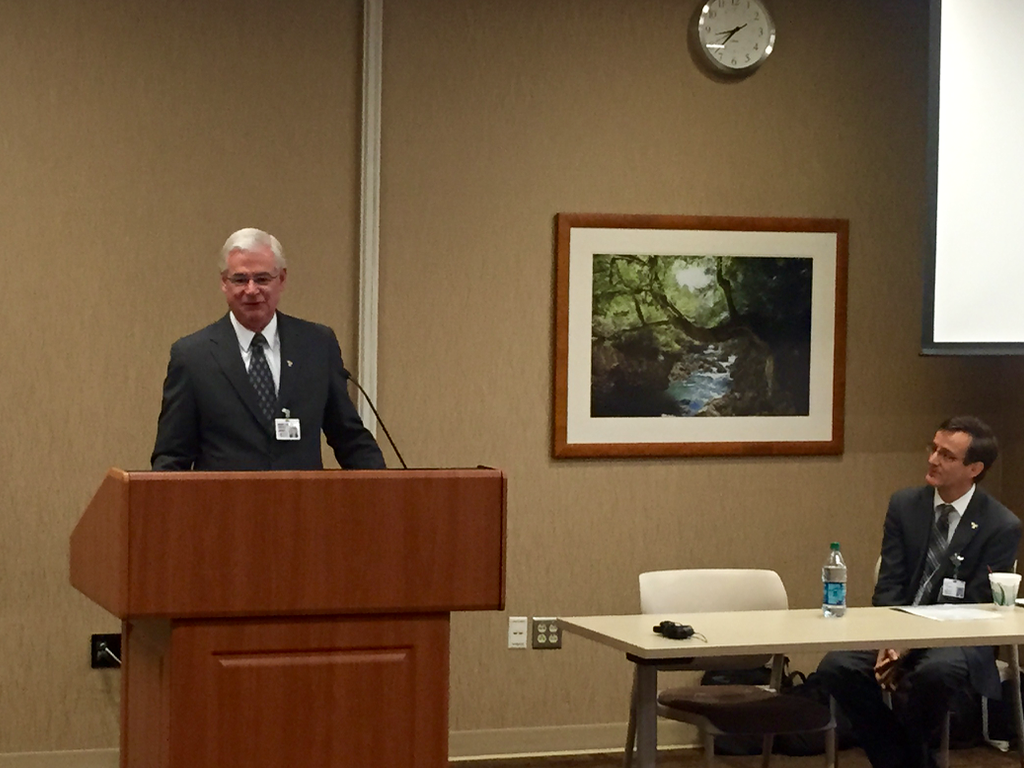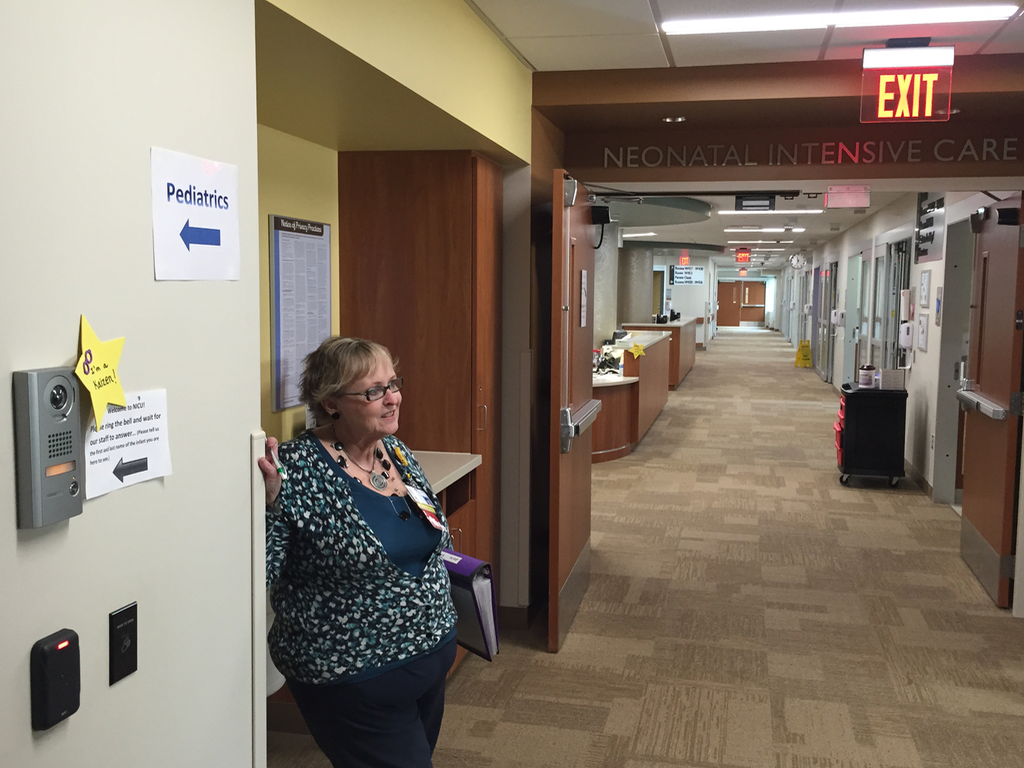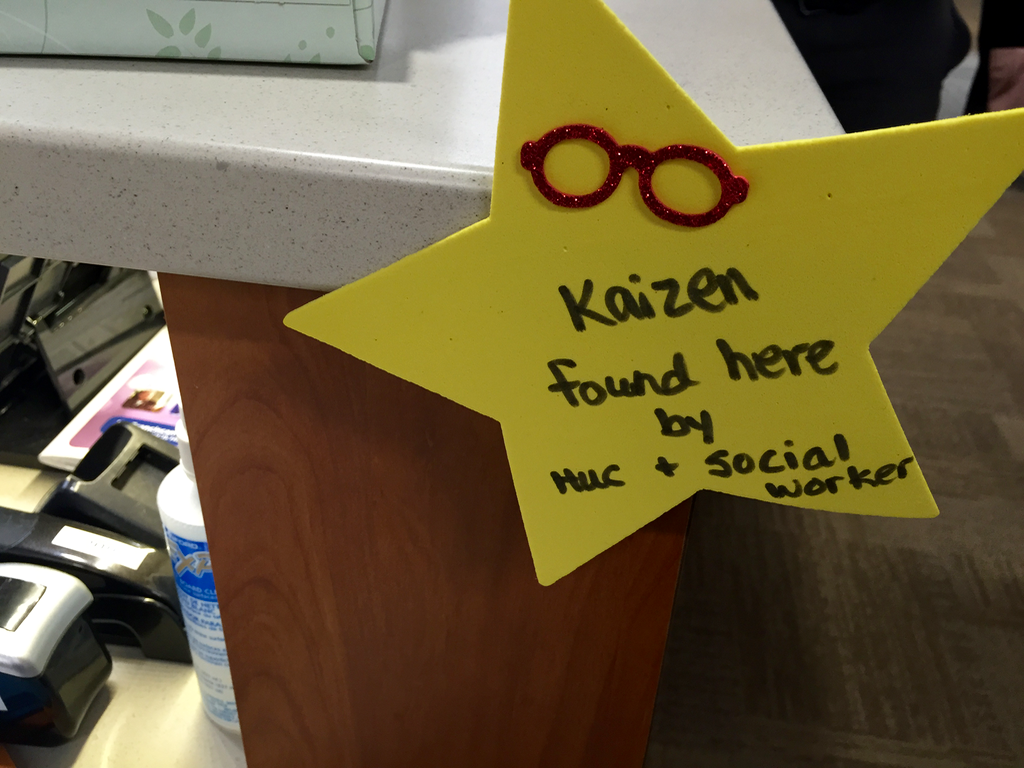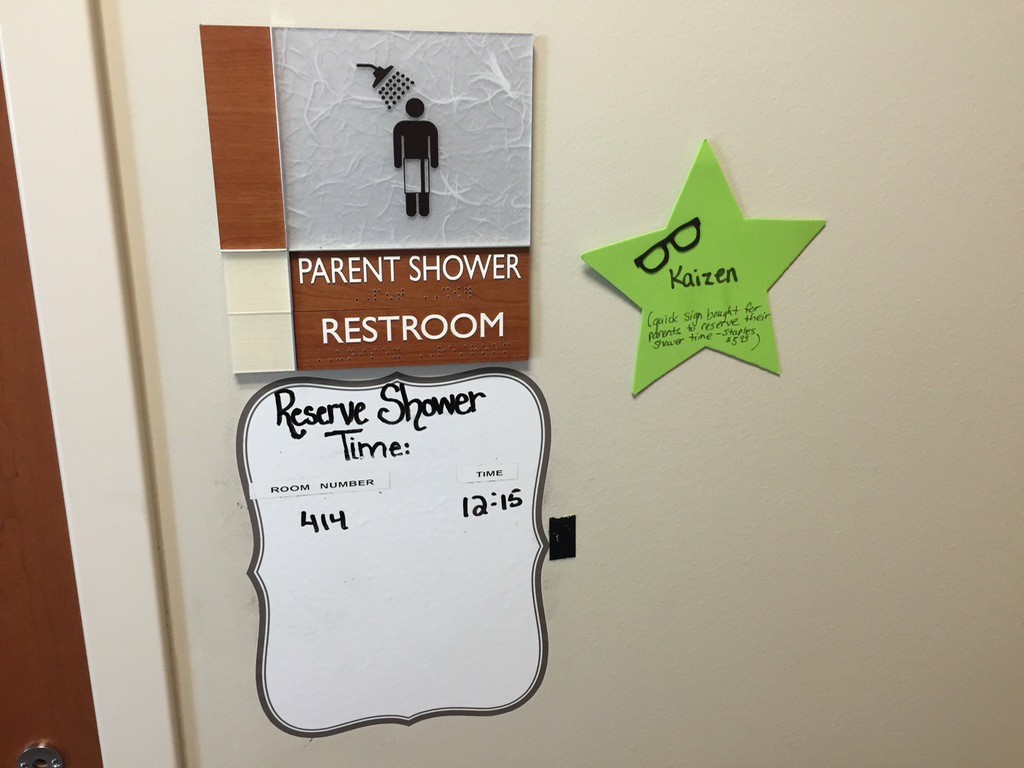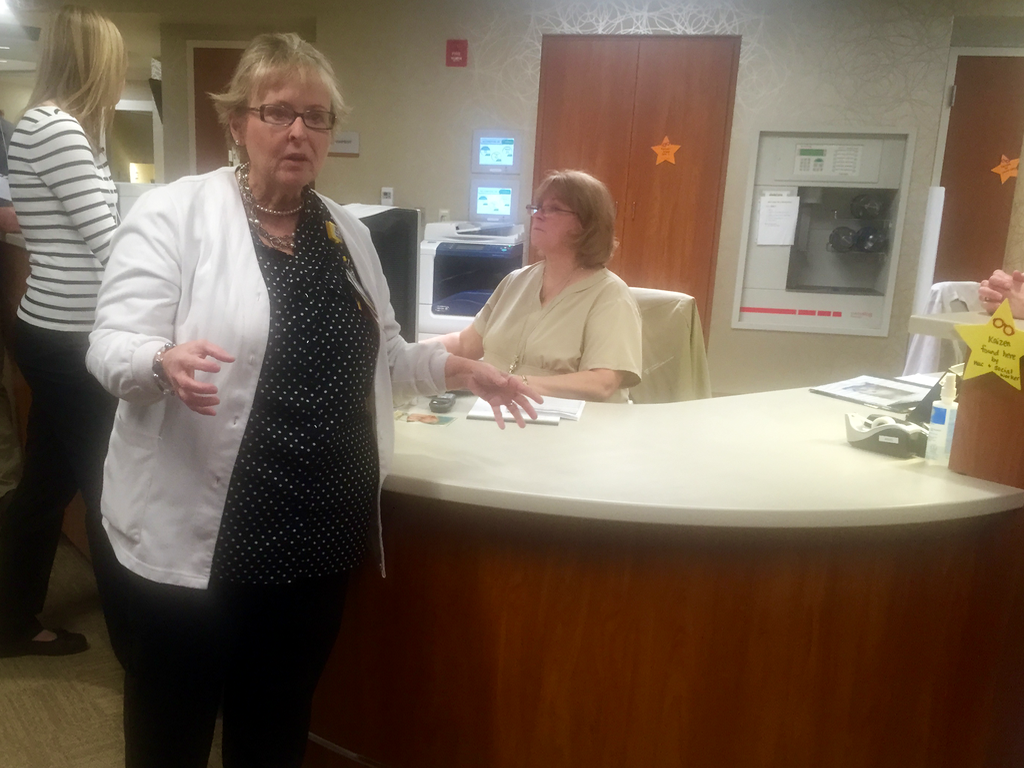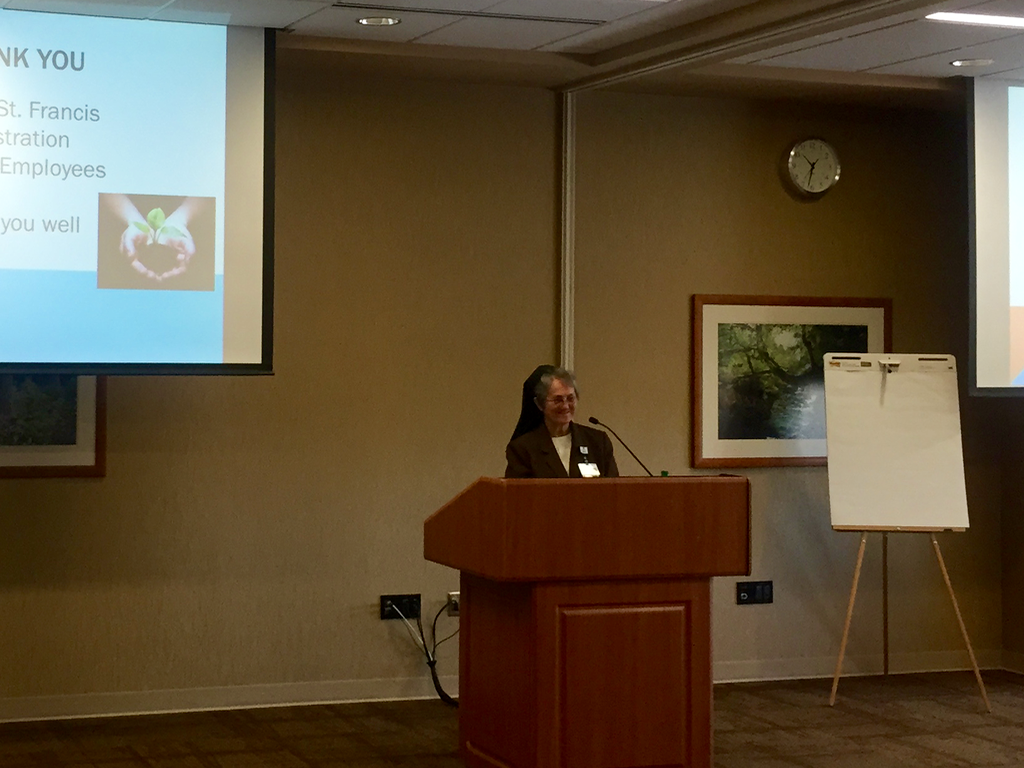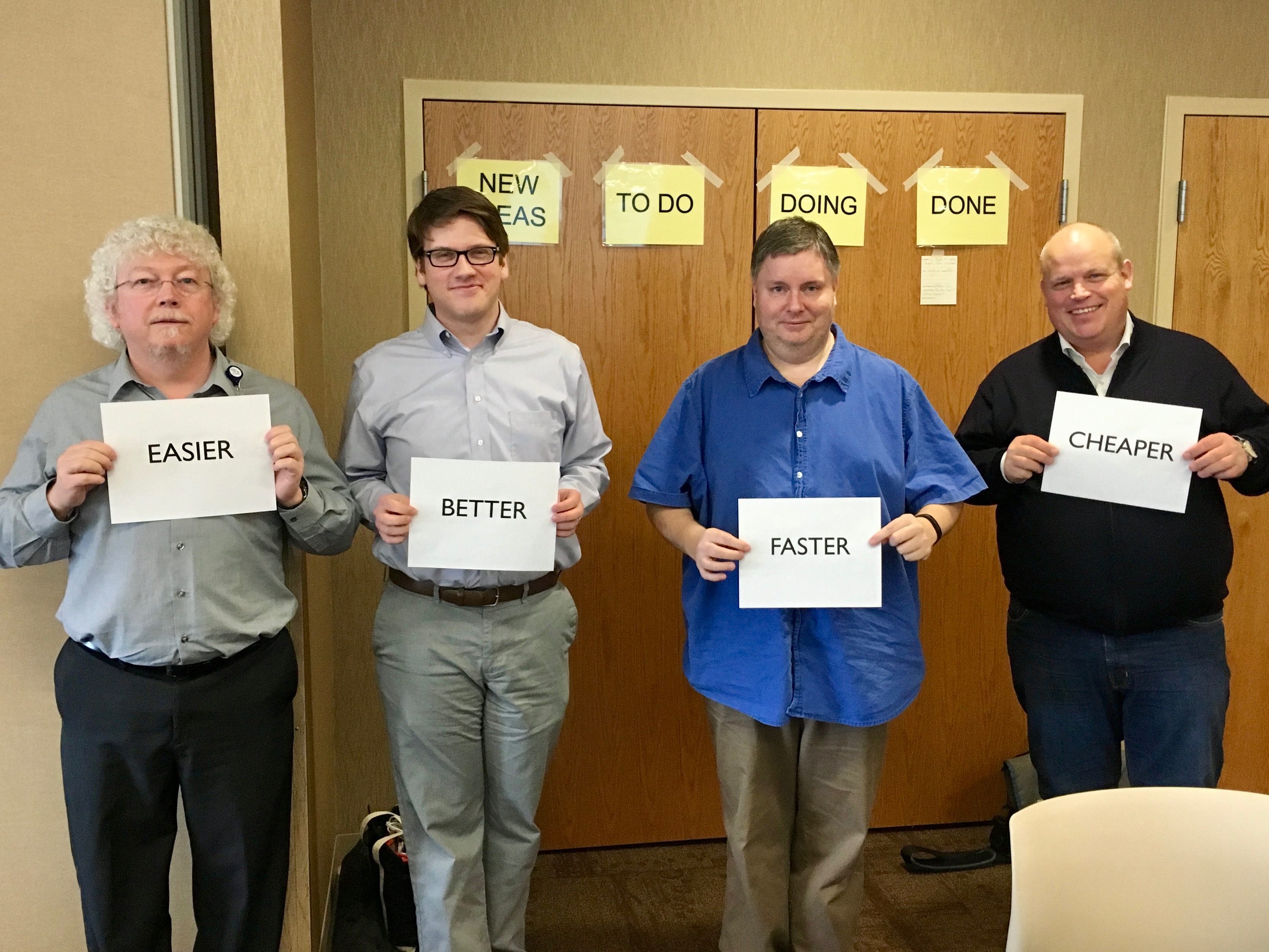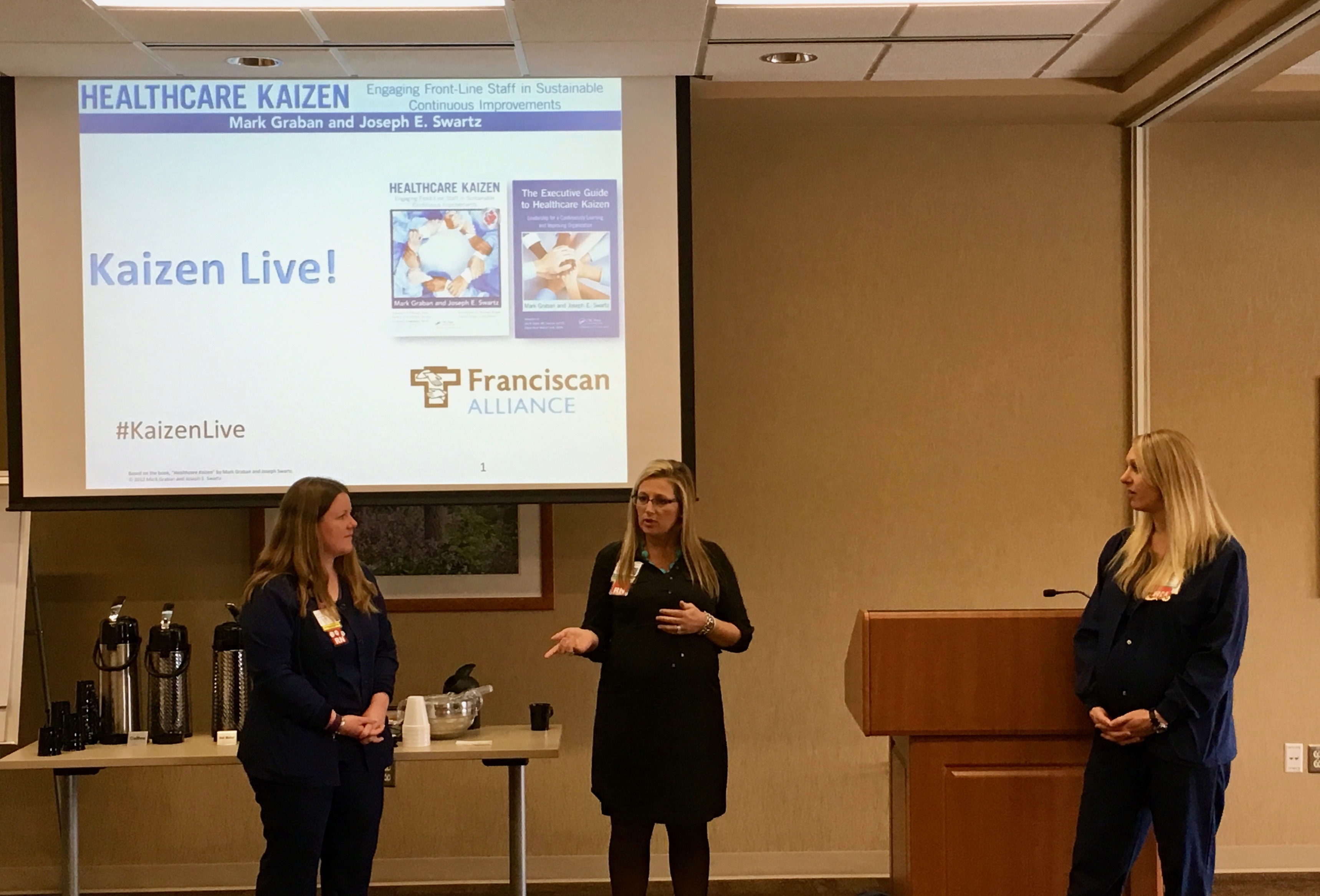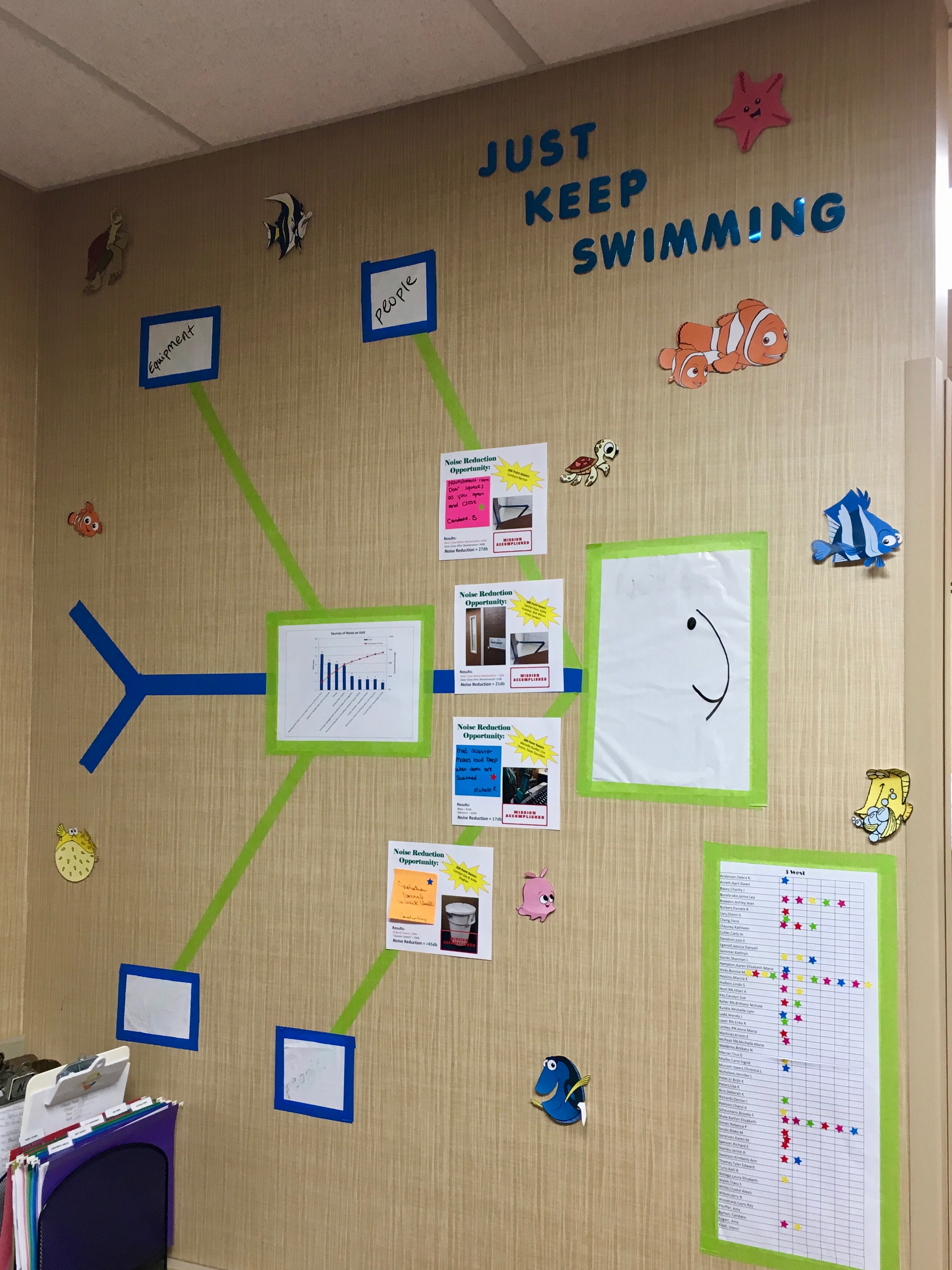Kaizen Live! Exclusive Site Visit Experience & Workshop at Franciscan St. Francis Health
SOLD OUT — Oct 3 & 4, 2019 — We’ll do this again… some day
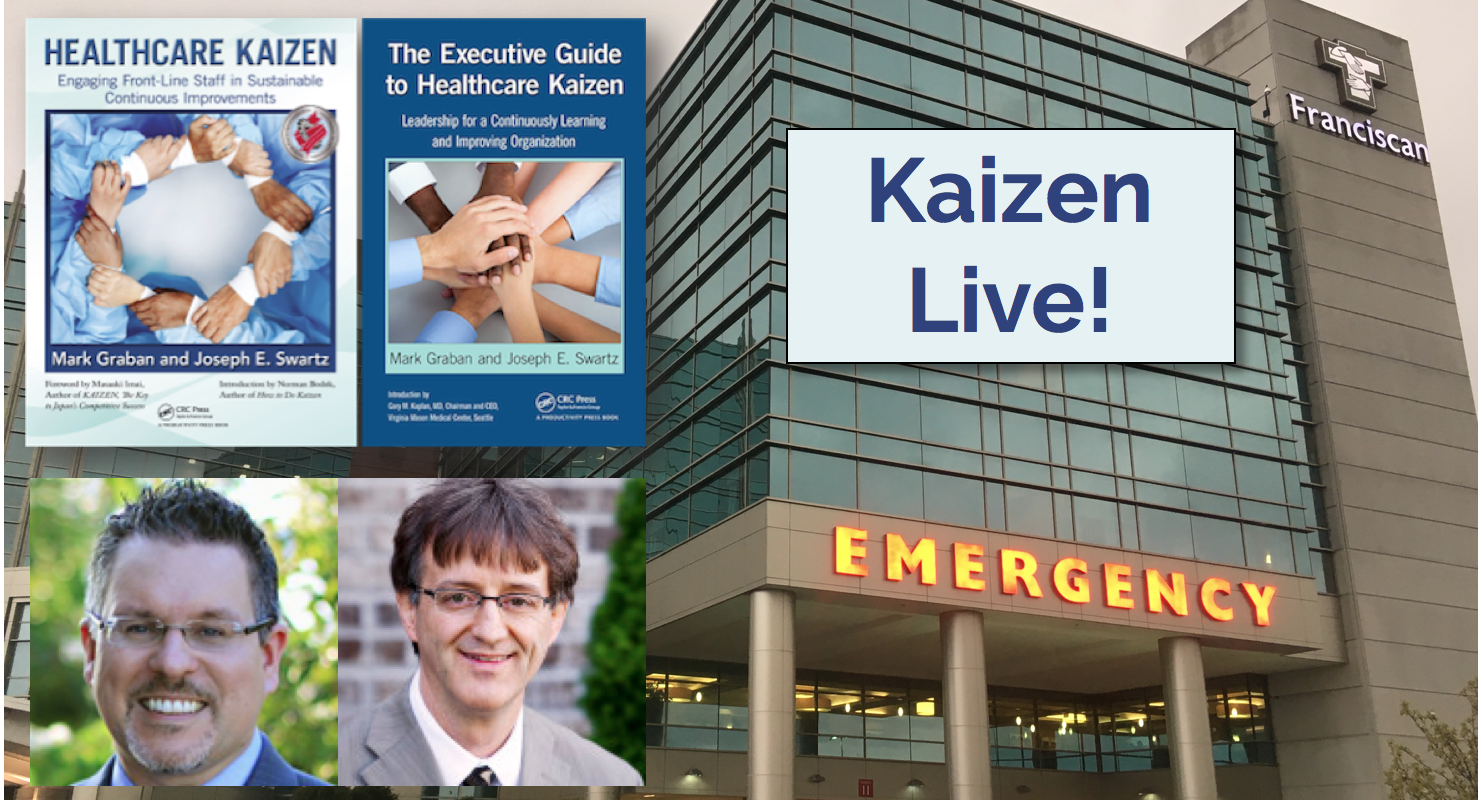
Joe Swartz and Mark Graban are again organizing a site visit to Franciscan St. Francis Health (Indianapolis, Indiana) for people to see and hear what a Kaizen “culture of continuous improvement” looks like and feels like first hand.
REGISTER NOW (SOLD OUT)
Pricing:
- Main Kaizen Live! workshop October 3-4, 2019: $699
- Group rate of $498 (3 or more attendees)
- Optional Kaizen Coaching class October 2: $299
Travel Info and Logistics
See more about location, travel, and logistics
A Video About the Event:
This is from 2017, but is still very applicable, except for the dates:
Attendee Comments from Previous Years:
From 2019:
“Amazing!!!! On point, very organized, informative and personal. I will come back and bring others with me!”
“Walking Gemba and meeting the Franciscan team in person cannot be replicated with any other means. The passion and pride of every employee was outstanding.”
“Kaizen Live brought together diverse leaders with the same passion, helping others to see waste and make a difference in healthcare. You will leave with a new perspective despite your level of Lean experience and feel energized to make a change as a result of visually seeing Kaizen in action and meeting Franciscan employees. When I saw that an endoscopy employee has implemented almost 500 “little Kaizens” independently and that the nursing leaders update their own graphs and huddle boards, I was simply inspired… inspired to spread this methodology and passion for change.”
“The Kaizen live event with Mark and Joe at Franciscan Health is well worth the trip. Their application of daily Kaizen is outstanding and you get to see first hand how they live the fundamental principles of lean every day in their joyful service of others. The event is very well organized and executed. Thanks Mark and Joe!”
From Previous Years
“Thank you for putting this together. This is what people should be doing instead of going to conferences.”
“I received more out of this workshop than any conference, training, etc. I’ve ever attended. It has more of a cohort effect in which you understand what other healthcare transformation teams are doing and experiencing and gain “friends” to connect with when back in the trenches.”
“The Kaizen Live workshop was very beneficial in highlighting the potential every company has with developing a Kaizen culture. I learned a lot from the attendees as well as the presenters and made valuable connections with those individuals.”
“There were several key items that made the workshop beneficial for our organization, including the firsthand experience of the culture from the viewpoint of the leaders, and especially front line employees. In short, the workshop was the boost we needed to further our journey.”
“I can’t tell you how valuable I think this workshop will be to the future of our department and organization. It was a great way to evaluate and recalibrate the direction of our focus so that we are moving forward with great intentionality.”
“This workshop was an exceptionally valuable opportunity for learning about the journey of a successful Kaizen organization in healthcare. The opportunity to Gemba walk with front-line employees that have not only engaged in Kaizen, but have fully embraced it as ‘Kaizeneers,’ made this an invaluable experience.”
“If you want to see real improvements and change at the front line level in a healthcare setting, you should go to this workshop!”
“If you have a process improvement program that delivers OK results, but fails to really connect with staff, there is a better way. Mark and Joe have outlined a simple and highly effective way for staff and managers to embrace daily process improvement. The results are evident with the pride and deep engagement demonstrated by the team at Franciscan St. Francis Health.”
“This is a great workshop. Mark and Joe did a wonderful job of getting us to the gemba and interacting with the wonderful staff at St. Francis. It was eye opening to see how the front line staff have woven kaizen into their daily activities.”
The inaugural workshops in 2015, 2016, 2017, and 2019 all sold out. We plan to hold this again in 2020.
2019 Event Schedule:
- Optional class covering Kaizen 101 and Kaizen Coaching
- Wednesday, October 2
- Main Kaizen Live! event
- Thursday, October 3 and Friday, October 4
- 2017 Agenda (.DOC) – will be updated
To easily re-visit this page, use the URL www.KaizenLive.com.
About the Main Kaizen Live! Workshop – October 3 and 4, 2019
(Read more about the optional class on October 2)
Since 2007, Franciscan St. Francis Health has engaged staff to implement and document almost 30,000 improvements, both large and small. They have improved the patient experience, quality, and safety, while creating a better workplace and saving millions of dollars. The NICU, for example, has dramatically increased patient/family satisfaction and their manager attributes this to their Kaizen process and ideas that were implemented by their staff.
You’ve read about “Healthcare Kaizen” and Franciscan’s success with continuous improvement. Now, come visit this Indianapolis-based health system to hear about and see Kaizen in practice for two full days on October 3 and 4, 2019.
In this 2-day workshop, you’ll have the opportunity to:
- Learn from Joe Swartz about his ten+ years at Franciscan spent teaching Kaizen practices and coaching staff and leaders, as Director of Business Transformation
- Also learn from Mark Graban about how to get started with Kaizen, based on his experience helping health systems around the world with Lean and continuous improvement
- Hear directly from Franciscan St. Francis executives and leaders, as they explain their critical role in fostering a culture of continuous improvement, lessons learned, and more
- Visit departments (such as pharmacy, NICU, endoscopy, etc.) in small groups to see and hear about Kaizen in practice
- See how Kaizen and MDI (Managing for Daily Improvement) work together
- See and hear about Kaizen improvements from the people who implemented them
- Learn about how they use technology to spread and share improvements across three sites
- Participate in discussions about your own active (or planned) continuous improvement journey
- Enjoy a group dinner the evening of October 2 and an optional gathering the evening of October 3
Our goal is to minimize the amount of time in didactic lecture mode and to maximize the amount of time spent in discussions, gemba visits, and Q&A sessions. You’ll have unprecedented access to Franciscan leaders and staff and you’ll have a great opportunity to really see and feel what a culture of continuous improvement looks like.
This workshop is designed for C-level executives, vice presidents and directors, continuous improvement staff, physician leaders, and more. You can get a special rate by bringing a group of three or more to learn and experience this together.
You will also have access to an hour-long “Intro to Kaizen” online course that will provide an introduction to these topics. We recommend completing this online work before the workshop to maximize your on-site experience.
We also encourage attendees to first read either of these books co-authored by Joe Swartz and Mark Graban:
- Healthcare Kaizen: Engaging Front-Line Staff in Sustainable Continuous Improvements (a Shingo Research Award recipient) or
- The Executive Guide to Healthcare Kaizen: Leadership for a Continuously Learning and Improving Organization
Read About Highlights From Past Workshops
Key lessons and highlights from 2015:
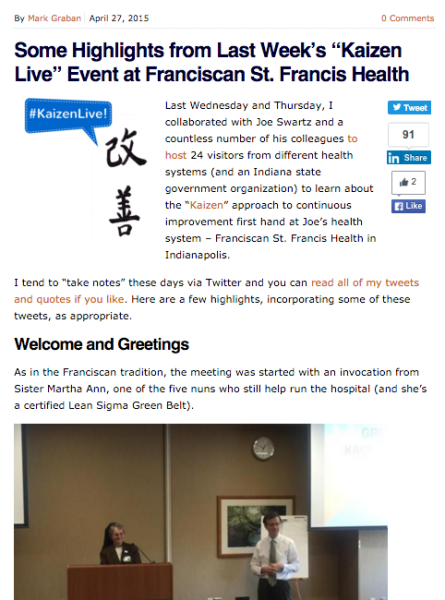
Click to read more about the 2015 and 2016 events via LeanBlog.org
Photos from the First Workshops in 2015 and 2016
Videos
See this video with Franciscan staff and leaders talking about their Kaizen approach:
You’ll see how Franciscan staff are “Kaizen crazy” and excited about improvement (read more):
You’ll hear from Franciscan managers who have MORE time in their day because they’ve developed their people and their problem solving skills (read more):

